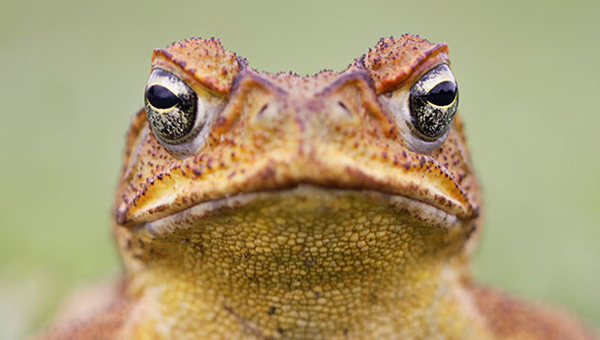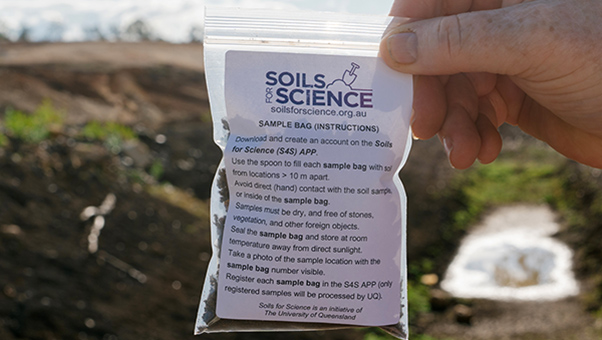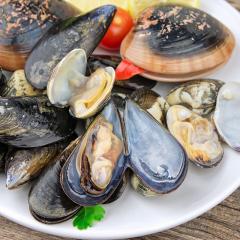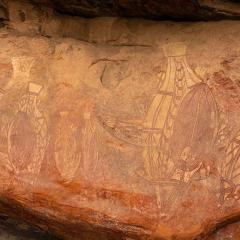We are experts in the detection, isolation, identification and evaluation of biologically active small molecules from Nature (known as natural products).
Our research aims to learn how and why Nature makes and uses natural products, to decipher molecular structures, and be inspired by their remarkable chemical and biological properties.
Our research has led to discovery of thousands of natural products, many rare or new to science, with the knowledge gained informing innovative solutions to important scientific, medical, agricultural and environmental problems.
Citizen science projects
Group leader

Professor Rob Capon
Group Leader, Molecular Biodiscovery: learning from nature
+61 7 334 62979
r.capon@imb.uq.edu.au
UQ Experts Profile
Exploring natural product artifacts: The polyketide enterocin warms to a ballet of isomers. Org. Letts. 2020, 22 (12), 4828-4832. DOI: 10.1021/acs.orglett.0c01629
Extracting value: Mechanistic insights into the formation of natural product artifacts - case studies in marine natural products, Nat. Prod. Reports 2020, 37; p.55-79. DOI: 10.1039/C9NP00013E
A tetrapeptide class of biased analgesics from an Australian fungus targets the m-opioid receptor. PNAS 2019, 116 (44); p. 22353-22358. DOI: 10.1073/pnas.1908662116
Chrysosporazines A-E: P-glycoprotein inhibitory piperazines from an Australian marine fish gastrointestinal tract-derived fungus, Chrysosporium sp. CMB-F214. Org. Lett. 2019, 21 (19): 8097-8100. DOI: 10.1021/acs.orglett.9b03094
Inter-Kingdom beach warfare: Microbial chemical communication activates natural chemical defenses. The ISME Journal 2019, 13: p. 147-158. DOI: 10.1038/s41396-018-0265-z
Prolinimines: N-amino-L-Pro-methyl ester (hydrazine) Schiff bases from a fish gastrointestinal tract-derived fungus, Trichoderma sp. CMB-F563. Org. Lett. 2018. 20 (2): p. 377-380. DOI: 10.1021/acs.orglett.7b03666
Cane Toad Challenge

An IMB Citizen Science initiative provides the public with patented pheromonal tadpole trapping technology, and enlists their support in the largescale capture and eradication of poisonous invasive cane toads tadpoles from local waterways.
More information
Soils for Science

An IMB Citizen Science initiative that informs the public about antibiotics and antimicrobial resistance, and enlists their support to collect soil samples from across Qld – to help discover new and improved antibiotics.
More information
Microbes Australia
A living library of Australian microbes, rich in new bioactive chemical diversity ideally positioned to fuel the search for new and improved therapeutics and agrochemicals.
More informationPreclinical validation of a novel drug lead to treat tuberculosis
Developing the cyclic peptide wollamides, first reported in 2014 by our lab from a far north Qld soil Streptomyces, as a new class of antibiotic effective against multidrug resistant tuberculosis.
More informationMarine Bioproducts Cooperative Research Centre (MB-CRC)
Growing Australia’s emerging marine bioproducts sector into a globally competitive industry, transforming marine seaweeds, microalgae and microbes into new high value human foods, animal feeds, nutritional supplements, nutraceuticals, cosmeceuticals, fertilizers, agrochemicals, bioplastics, biomaterials, and much more….
More informationNew antiparasitics to safeguard Australian livestock
Exploring microbes isolated from Australian sheep faeces and pastures heavily infected with drug resistant worms, to discover new classes of antiparasitic to safeguard animal health.
More information
Our approach
Our research calls on many areas of science;
- We are primarily chemists, drawing on knowledge of the fundamental principles of organic chemistry, supported by an array of sophisticated technologies, including analytical, semi-preparative and preparative high performance liquid chromatography, mass spectrometry and nuclear magnetic resonance spectroscopy.
- As much of our research is focused on microbial chemistry, we are skilled in the isolation and study of bacteria and fungi from diverse environments, and the use of innovative methods for high throughput cultivation and metabolite profiling.
- Biological profiling is critical to biodiscovery, and our inhouse capabilities include assays against drug sensitive and resistant human pathogens including Mycobacterium tuberculosis, as well as crop pathogens, animal parasites, and human cancers.
Research areas
Our natural products (biodiscovery) seeks to learn from Nature, to;
- Provide an exciting and productive research training environment.
- Gain access to and learn about new high value natural chemicals.
- Interpret the language behind inter-species chemical communication and ecology.
- Develop new molecular probes to better understand living systems, and disease.
- Develop new pharmaceuticals for infectious and inflammatory diseases, cancer and pain.
- Develop new antiparasitics to safeguard animal health and welfare.
- Develop new fungicides, herbicides and insecticides to protect crops and improve productivity.
- Develop new molecular tools to protect the environment.
Latest news
-
-
Language of the Land - Brisbane has its say!
18 September 2023 -
New antibiotics on the way – but not quickly enough
25 July 2023
General enquiries
+61 7 3346 2222
imb@imb.uq.edu.au
Media enquiries
IMB fully supports UQ's Reconciliation Action Plan and is implementing actions within our institute.
Support us
Donate to research
100% of donations go to the cause
















